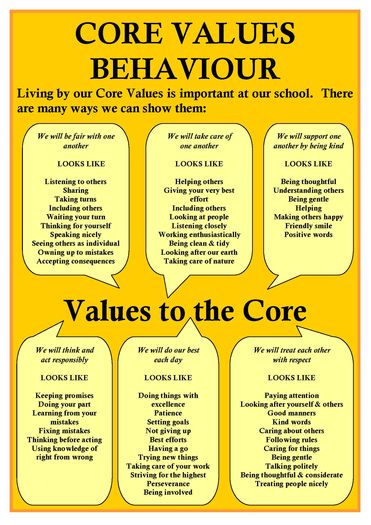Empathy
Helpfulness
Fairness
Tolerance
Caring
Courage
Humor
Respect
Loyalty
Courtesy
Patience
Resourcefulness
Peacemaking
Self-Reliance
Self-Motivation
Responsibility
Honesty
Trustworthiness
Self-Discipline
Cooperation
- Barbra C. Unell and Jerry L Wyckoff, "20 Teachable Virtues: Practical Ways to Pass on Lessons of Virtue and Character to Your Children," 1995
How to Live a Good Life: Advice from Wise Persons
Virtue Ethics

I worked part-time for the Corning Union Elementary School District (5 schools, K-8) from 1999-2016 as the Technology and Media Services Supervisor, and District Librarian. My office was in the Maywood Middle School, serving public school students in the 6th to 8th grades, ages 11 to 14.
Teachers and staff tried our best to create a safe, positive and productive educational environment. We had signs and posters, and used daily verbal reminders about the kind of social and learning environment we wanted students to create and support.
I read with interest a few years ago about Fundamentalist Baptist Christians in Southern U.S. States that were pushing to have the Hebrew (Jewish) Ten Commandments of Moses placed on posters in every public elementary school (K-8) classroom. I seriously doubt that telling a third grade student not to commit adultery, not to covet their neighbor’s wife or property, not to kill, and to worship only the Hebrew deity Yahweh is very meaningful or relevant to them, or beneficial in improving elementary scool classroom behaviors.
In our public school, we emphasized core values every day: Responsibility, Integrity, Safety and Courtesy.
Here are examples from three posters in our library and classrooms:
Self Respect
S Set Goals
E Exercise
L Love Yourself
F Focus on Fitness
R Rest and Relax
E Eat Right
S Smile
P Portray the Positive
E Enjoy Life
C Care for Others
T Tell Yourself “You Can Do This”
Good People Skills
Smile
Use Good Manners
Acknowledge Others
Use Greetings
Use People’s Names
Look at People When Talking
Listen
Accept Differences
Respect the Opinions of Others
Give Compliments

I read with interest a few years ago about Fundamentalist Baptist Christians in Southern U.S. States that were pushing to have the Hebrew (Jewish) Ten Commandments of Moses placed on posters in every public elementary school (K-8) classroom. I seriously doubt that telling a third grade student not to commit adultery, not to covet their neighbor’s wife or property, not to kill, and to worship only the Hebrew deity Yahweh is very meaningful or relevant to them, or beneficial in improving elementary scool classroom behaviors.
In our public school, we emphasized core values every day: Responsibility, Integrity, Safety and Courtesy.
Here are examples from three posters in our library and classrooms:
Self Respect
S Set Goals
E Exercise
L Love Yourself
F Focus on Fitness
R Rest and Relax
E Eat Right
S Smile
P Portray the Positive
E Enjoy Life
C Care for Others
T Tell Yourself “You Can Do This”
Good People Skills
Smile
Use Good Manners
Acknowledge Others
Use Greetings
Use People’s Names
Look at People When Talking
Listen
Accept Differences
Respect the Opinions of Others
Give Compliments

No comments:
Post a Comment